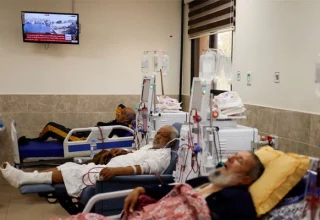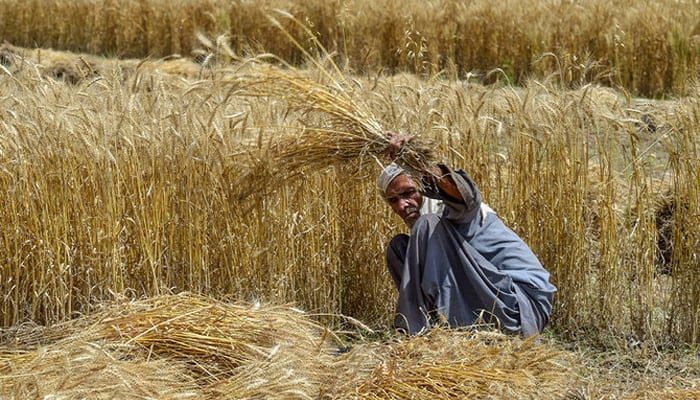Muhammad Daniyal Special Correspondent Daily Relation Times Experts at a symposium demanded a stakeholders’ engagement and capacity building of regulators to enforce harmonized standards intended to control the health hazards of trans fatty acids (TFAs).
The symposium on Reducing Industrial Trans Fatty Acids (iFTAs) in Pakistan was jointly organized by Sustainable Development Policy Institute (SDPI) and Cargill Pakistan here.
Dr Abid Qaiyum Suleri, SDPI Executive Director, said that multisectoral dialogues are required for managing dynamic issues like injurious impact of iTFAs on health. He said the prime areas of focus in terms of food security are availability, affordability, accessibility, and nourished value of food items. However, the west is grappling with the crisis of malnourishment leading to obesity, whereas in Pakistan, public lifestyle is different due to economic situation and culture.
He proposed a four-step strategy starting from the first step of an honest and credible disclosure from the industry about the cooking oil products that will lead to innovation and alternatives to counter iTFAs proliferation. Moreover, awareness among consumers, pragmatic regulations and strict enforcement of laws would chip in to the bourgeoning crisis of iTFAs hazards.
Sarim Bokhari, Government Relations Lead, Cargill Pakistan said the company is committed to reducing iTFAs and it was strictly complying to the World Health Organization (WHO) guidelines. He said that the developing countries like Pakistan lacks legislation that is not compliant with WHO recommendations, therefore Cargill is collaborating with the SDPI in this regard.
Brig. (Retd) Tariq Saeed, Advisor, Cargill Pakistan, said the Cargill is a 59-year-old company with a vision of safe, responsible and sustainable operations for its consumers. “We need to start with initial steps like warnings about injurious health impacts of loose oils and TFAs to shift the public towards iTFAs-free diet,” he added.
Dr Tahira Siddiqui, Deputy Director, Islamabad Food Regulatory Authority, in her presentation, said the TFAs are found in the meat and dairy products, whereas the iTFAs were produced after hydrogenation mainly found in bakery products, frozen and refrigerated items.
“Pakistan is the second highest consumer of iTFAs in the world as after petroleum products, its edible oil imports were the largest worth $4.3 billion.” Stressing the need to ensure dialogue between industry and technical experts to shift from iTFAs, she said: “Alternatives to iTFAs needs to be given to the industry pertaining to their raw material sources and practices. Moreover, incentives can also be used to promote shift and embrace alternatives to iTFAs.” She added that it is a complex challenge to eradicate iTFAs, however we can help achive the task by adopting efficient policies, and multifaceted approaches to engage all the partners.
Ayaz Ahmed Soomroo, Pakistan Standards & Quality Control Authority (PSQCA) said after harmonization of iTFAs’ standards PSQCA is regulating it at the federal level. The National Committee on Food Standards that convene food authorities of all the provinces along with PSQCA has harmonized PSQCA standards, he said, adding, “A regulatory scheme for iTFAs was underway and it will help resolve the problem.”
Dr Khawaja Masood Tahir, National Coordinator at Ministry of National Health, Services, Regulations and Coordination said that since the harmonization of food standards was made after the Council of Common Interests in 2019, the national standards were revised and TFAs were made permissible to 5% of the total product. He called for constituting a single committee to approve the rules for the left-over food items containing iTFAs. Dr Tahir mentioned that enforcement and implementation is the major challenge and the capacity of implementing agencies on iTFAs was the biggest hurdle in phasing out iTFAs.
Farah Ather, Deputy Director Regulation and Accreditation, Punjab Food Authority said the Authority is the pioneer regulatory agency that focuses on food safety and hazards of iTFAs. She added that the iTFAs’ standards have been harmonized and adopted by the PFA whereas the Vanaspati standards were not adopted so far. The WHO regulations are not only a legal but also a moral obligation to make a society healthy society, she said.
Huzaifa from KK Foods said his firm was manufacturing snacks, nimkos, and sweets whereas the iTFAs reduction was a challenge during the production procedures. “We want guidelines for oil usage and would welcome all such interventions to save public lives by switching over benign options,” he added.
Hassan Ali from Gilgit-Baltistan Food Authority informed the forum that it was a new regulatory body in the region that was conducting its enforcement operations through the district administration. However, there were small-scale bakeries in Gilgit Baltistan and no major oil production facilities existed in the northern area.
Ghulam Hussain from RnD Punjab Oil said the iTFAs reduction is possible through full hydrogenation and blending of palm oil.
Saqib, Cansas, Consultant of Tehzeeb Bakers, said in Pakistan, there is no facility of isomerization of edible oils and the iTFAs control is only possible through controlled processing, and proper selection of raw material from vegetable source.
Dr Zafar, Food safety expert at FAO, said most of our food is street food that is unregulated. Since the TFAs are drivers of many serious diseases, street food should be considered by food authorities to regulate it.
Dr Muhammad Ajmal, Vice-President of Pakistan Medical Association (PMA) stressed the need to enhance awareness among the general public to reduce the use of iTFAs.
Dr Tahira Sadiq from RIPAH University called for promoting a discontinuation of sedentary lifestyle, along with public health and education as a crucial element to reduce iTFAs.
Dr Fauzia Sadiq from Shifa Tamer e Millat Foundation said the challenge is how to bring shift in the public behaviour for switching from their existing consumption patterns. She called for a multifaceted approach for a stakeholder engagement to curb iTFAs in human diet.




























